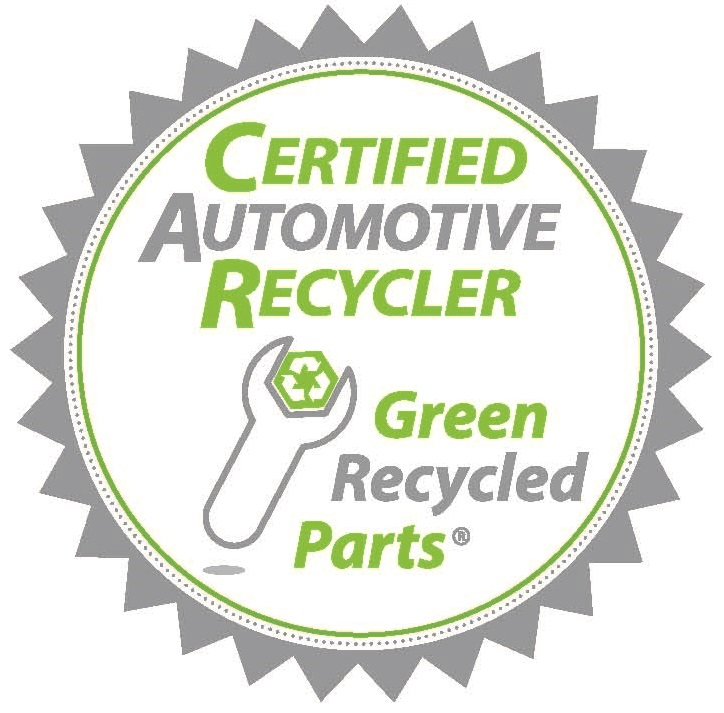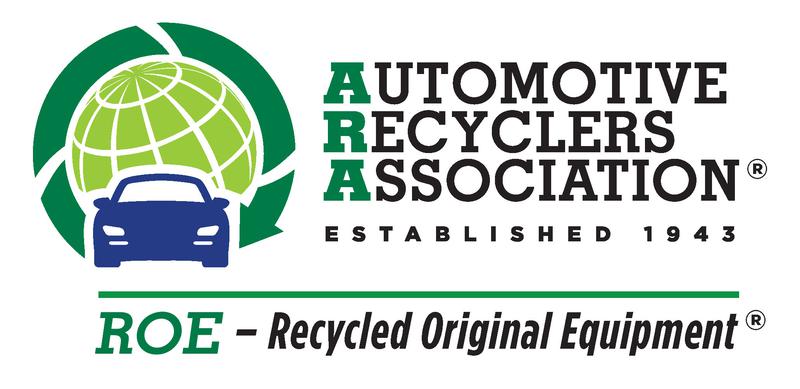Certified Auto Recyclers
Many professional automotive recyclers use a certification program to attain and maintain compliance with environmental, safety and transportation rules applicable to salvage facilities. The Automotive Recyclers Association (ARA) Certified Auto Recyclers (CAR) program sets a standard of excellence as the path to compliance.
Members of the Auto & Truck Recyclers Association of New Hampshire utilize the ARA CAR program as a resource. Facilities that have achieved certification communicate to the marketplace that they have successfully undergone a comprehensive assessment and their processes and organization meet defined standards.
Regulatory Agency
New Hampshire Department of Environmental Services (DES) responsibilities range from ensuring high levels of water quality for water supplies, ecological balance, and recreational benefits, to regulating the emissions of air pollutants, to fostering the proper management of municipal and industrial waste, to managing water resources for future generations.
EPA Region 1 (New England) Serving Connecticut, Maine, Massachusetts, New Hampshire, Rhode Island, Vermont and 10 Tribal Nations. https://www.epa.gov/aboutepa/epa-region-1-new-england
EPA New England Headquarters
5 Post Office Square - Suite 100
Boston, MA 02109-3912
New England States: (888) 372-7341
(Answered by voice mailbox which is checked daily, Mon - Fri. Calls returned within 24 hours Mon - Fri.)
Outside New England: (617) 918-1111
Stormwater Regulation
Stormwater is regulated by the by EPA in New Hampshire under the Clean Water Act. For more information, read the Federal Stormwater Permits fact sheet. https://www.epa.gov/npdes/stormwater-discharges-industrial-activities-epas-2021-msgp
EPA’s 2021 MSGP applies in areas of the country where EPA is the NPDES permitting authority and has made the permit available for coverage. These areas include: Four states: Massachusetts, New Hampshire, and New Mexico (Idaho recently transfer to state).
See information page at https://www.epa.gov/npdes/stormwater-discharges-industrial-activities-epas-2021-msgp
Spill Reporting
First: Contact 911 or local fire department
Second: Call NHDES Spill Response
• Monday- Friday, 8 a.m to 4 p.m, (603) 271-3899
Monday- Friday, 8 a.m to 4 p.m, (603) 271-3899
• Weekends and Evenings, (603) 223-4381 (State Police Dispatch)
Weekends and Evenings, (603) 223-4381 (State Police Dispatch)
For chemical or oil spills that impact surface water, call the National Response Center at (800) 424-8802.
National Response Center
If the hazardous condition involves the release of an EPA regulated material or an oil as defined by the EPA, the release may also need to be reported to the National Response Center at (800) 424-8802. Federal Reporting is required within 15 minutes of event occurrence or discovery.
The National Response Center (NRC) is a part of the federally established National Response System and staffed 24 hours a day by the U.S. Coast Guard. It is the designated federal point of contact for reporting all oil, chemical, radiological, biological and etiological discharges into the environment, anywhere in the United States and its territories.
Resources
Pollution Prevention Resource Exchange (P2Rx™) http://www.p2rx.org/
P2Rx is a national partnership of regional pollution prevention information centers funded in part through grants from EPA. We build networks, deliver P2 information, and measure P2 program results.
The Northeast Waste Management Officials' Association (NEWMOA) http://newmoa.org/
NEWMOA is a non-profit, non-partisan interstate association whose membership is composed of the state environmental agency directors of the hazardous waste, solid waste, waste site cleanup, emergency response, pollution prevention, and underground storage tank programs in Connecticut, Maine, Massachusetts, New Hampshire, New Jersey, New York, Rhode Island, and Vermont.
NEWMOA's mission is to develop, lead, and sustain an effective partnership of states that helps achieve a clean, healthy, and sustainable environment by exploring, developing, promoting, and implementing environmentally sound solutions.
NEWMOA’s projects include:
NEWMOA formed its Northeast Pollution Prevention and Sustainability Program in 1989 to enhance the capabilities of the state and local government environmental officials in the Northeast to implement effective multi-media source reduction and assistance programs and promote sustainability and improvement in public health and the environment. https://www.newmoa.org/programs/pollution-prevention/
Waste Tire Projects - NEWMOA has prepared several reports on waste tires to help inform state programs improve the management of this large waste stream, including:
Review of Northeast States' Tire Programs
Northeast End Markets Tire Waste Paper
Waste Tires in the NEWMOA States
Industry experts estimate that waste tires (also known as scrap tires) are generated at a rate of about one tire per person per year. Using recent census data for the northeast, NEWMOA estimates that the number of waste tires produced in the northeast is approximately 43.3 million per year (based on the 2018 census). Although today's tires last for more miles than they did in the past, the number of cars on the road is increasing, and the average number of miles driven annually is also increasing.
Auto Body Refinishing Project - NEWMOA worked with the Small Business Environmental Assistance Programs (SBEAPs) in the six US EPA Region 5 states (IL, IN, MI, MN, OH and WI) to develop and implement an Environmental Results Program (ERP) for autobody refinishing shops. https://www.newmoa.org/projects/region-5-autobody-initiative/
The following fact sheets are designed to assist automotive recyclers with operating their businesses and managing their wastes in compliance with the environmental laws in their state. Select from the list below.






